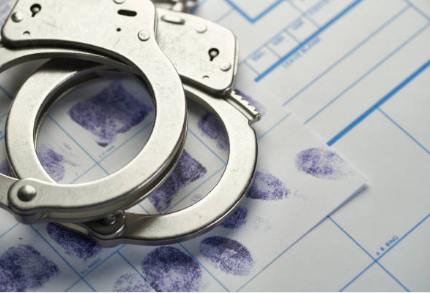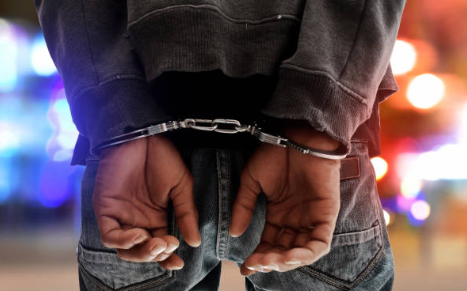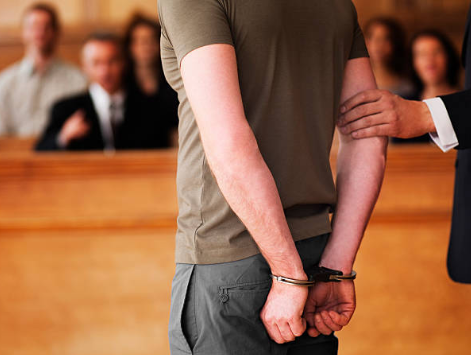How can mental health issues be addressed in the criminal justice system?
Learn more about the complex relationship between mental health and the criminal justice system and explore effective strategies for addressing mental health issues in this context.

Selfpause Affirmation App
Download the app to get 1,000’s of affirmation meditations and everything you need to write, record and listen to your own.
The goal of the criminal justice system is to keep everyone safe by punishing people who break the law. But a lot of people in the criminal justice system have mental health problems that are often ignored or not taken into account. Dealing with mental health issues in the criminal justice system is important for helping people with mental health problems and reducing the chance that they will do it again. In this article, we’ll talk about some ways that the criminal justice system can deal with mental health issues.
Training for people in charge
Officers of the law are often the first people people with mental health problems who are involved in the criminal justice system talk to. So, it’s important for law enforcement officers to get special training so they can spot people with mental health problems and help them in the right way. This training can teach people how to calm down a situation, handle a crisis, and understand mental health disorders.

Divert programs
Diversion programs are a good way for the criminal justice system to deal with problems with mental health. People with mental health problems who are in these programs are kept out of the criminal justice system and put into treatment programs. Some examples of diversion programs are mental health courts, drug courts, and treatment programs that take place in the community. People with mental health problems can do better in life if they take part in these programs.
Courts for mental health
Mental health courts are specialized courts that deal with cases involving people who have problems with their mental health. People with mental health problems can get intensive treatment and supervision through mental health courts. By giving people with mental health problems access to treatment, medication, and other support services, these courts can cut down on repeat offenses and improve outcomes.
Screening and figuring out
In the criminal justice system, people with mental health problems must be found through screening and assessment. All people who enter the criminal justice system should be screened and evaluated for their mental health to find out who might need help. Screening and assessing can help make sure that people with mental health problems get the right help and treatment.

Taking care of medications
Many people with mental health problems need to take medicine to control their symptoms. However, medication management can be difficult in the criminal justice system. Jails and prisons may not have the resources to provide appropriate medication management, and individuals may not have access to their medications. Making sure that people with mental health problems get the right help with their medications can lead to better results and lower rates of re-offending.
Programs for helping peers
Peer support programs can be a good way for the criminal justice system to deal with mental health issues. In peer support programs, people with mental health problems help and guide others who are going through the same things. Peer support programs can help people with mental health problems feel less alone and less stigmatized by giving them a sense of community and support.
Mental health treatment programs
For the criminal justice system to deal with mental health problems, it is important to have mental health treatment programs. Treatment programs can include both one-on-one and group therapy, help with managing medications, and other kinds of support services. People with mental health problems can do better in these programs and are less likely to commit crimes again.
Programs to help people get back on their feet
Reentry programs are made to help people who have just been released from jail or prison get back into society. Reentry programs can include help with mental health, job training, and other services to help people get back on their feet. People with mental health problems can do better in life if they take part in these programs.

Partnerships that work together
To deal with mental health issues in the criminal justice system, law enforcement, mental health professionals, and other community groups need to work together. People with mental health problems can get access to resources and support services through these partnerships. It can also help people whose lives are affected by the criminal justice system.
Changes in policy and advocacy
For the criminal justice system to deal with mental health problems, there needs to be advocacy and policy changes. Advocates can bring attention to the problems people with mental health problems face in the criminal justice system and push for changes in policies and practices. Policy changes can include giving more money to programs that help people with mental health problems, using solitary confinement less, and giving people with mental health problems alternatives to jail time.
In conclusion, dealing with mental health issues in the criminal justice system is important for helping people with mental health problems and reducing the chance that they will do it again. Strategies for dealing with mental health issues in the criminal justice system include training for law enforcement, diversion programs, mental health courts, screening and assessment, medication management, peer support programs, mental health treatment programs, reentry programs, collaborative partnerships, advocacy, and policy change. By using these strategies, we can help people with mental health problems do better in the criminal justice system and make the system more fair and just for everyone.
